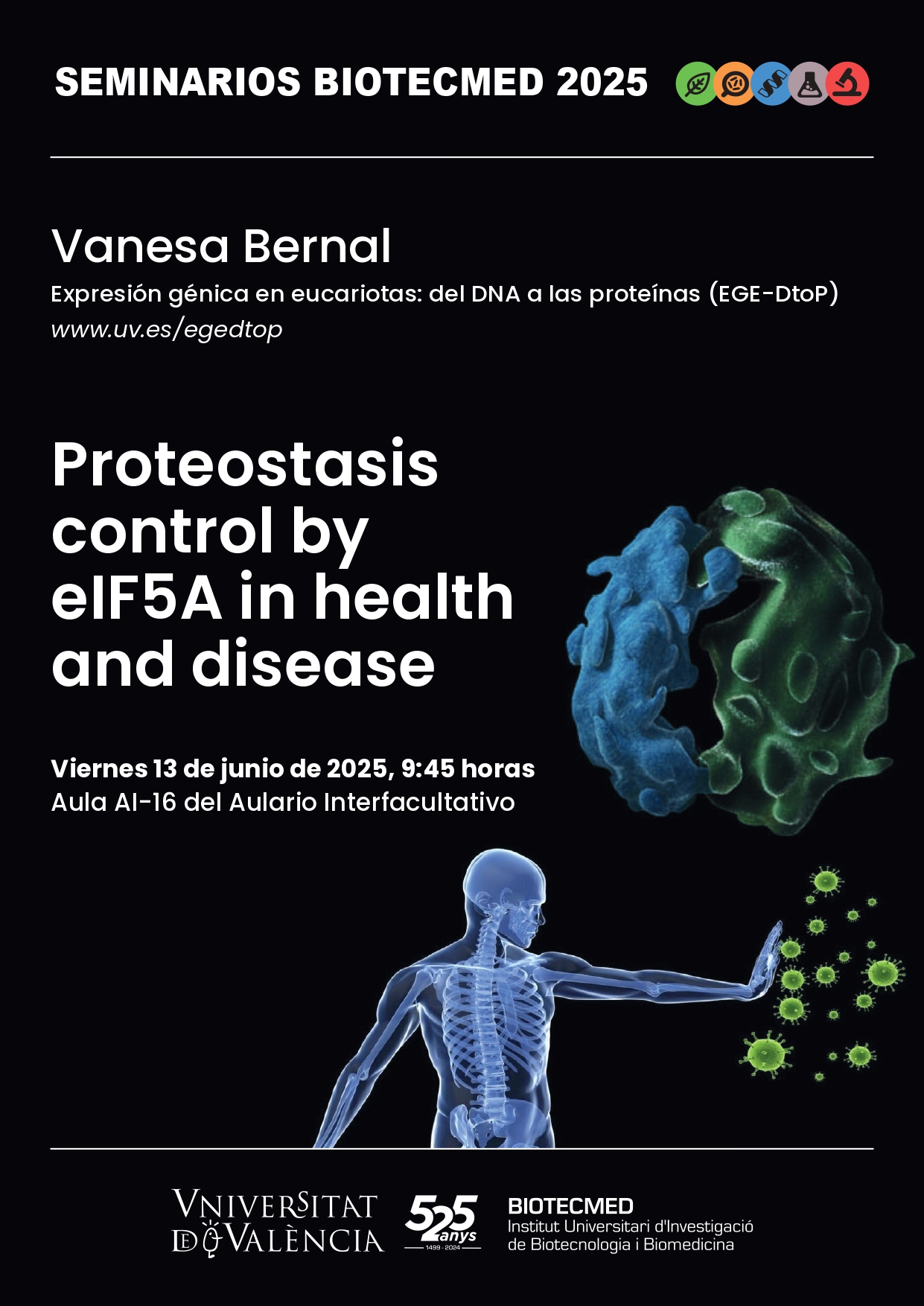L’Institut Universitari de Biotecnologia i Biomedicina (BIOTECMED) organitza una nova xarrada el divendres 13 de juny a les 9.45 h a l’aula AI-16A de l’aulari interfacultatiu. Vanesa Bernal, del grup EGE-DtoP, presentarà la conferència titulada Proteostasis control by eIF5A in health and disease.

El pròxim divendres 13 de juny, a les 9.45 h, se celebrarà una nova xarrada de l’Institut Universitari de Biotecnologia i Biomedicina (BIOTECMED), que en esta ocasió anirà a càrrec de Vanesa Bernal, investigadora del grup EGE-DtoP. La seua ponència porta per títol Proteostasis control by eIF5A in health and disease i abordarà el paper fonamental de la proteïna eIF5A en el control de la proteòstasi i la seua implicació en diverses malalties. La xarrada tindrà lloc a l’aula AI-16A de l’aulari interfacultatiu.
Este estudi investiga la funció essencial de la proteïna eIF5A en la traducció d’ARNm, especialment durant l’estrès tèrmic en el llevat Saccharomyces cerevisiae. Es demostra que eIF5A és crucial per a la síntesi de xaperones necessàries per a mantindre l’homeòstasi proteica, i que la seua absència causa sensibilitat a la calor, fallades en els mecanismes de defensa cel·lular i acumulació de proteïnes mal plegades. La investigació subratlla la seua importància per a evitar agregats proteics relacionats amb malalties humanes com el Huntington.
Abstract de la xarrada:
The translation of mRNA into polypeptides is one of the most fundamental biological processes, affected by multiple factors. eIF5A is an essential, abundant and evolutionarily conserved protein, primarily acting as a translation elongation factor. This factor binds to ribosomes, facilitating the translation of specific peptide motifs by assisting stalled ribosomes to promote elongation and it has been linked to various diseases, including cancer, viral infections, diabetes, neurodevelopmental disorders and aging. During heat stress and aging, chaperones are essential for maintaining cellular proteostasis. Our studies in the yeast Saccharomyces cerevisiae indicate that eIF5A protein levels increase at high temperatures, whereas its depletion leads to heat sensitivity. A lack of eIF5A impairs stress-resistance mechanisms, such as translation arrest and the formation of stress granules and P-bodies. Notably, eIF5A depletion results in the defective translation of mRNA encoding chaperones, particularly Hsp70, Hsp100, and small heat shock proteins. However, the dependency of these chaperones on eIF5A does not appear to be related to the presence of specific eIF5A-dependent peptide motifs in their sequences. Instead, it seems to be related to other specific characteristics of their mRNAs. Our results demonstrate that the absence of chaperone synthesis in eIF5A-depleted cells results in issues with protein homeostasis, highlighting the pivotal role of eIF5A in preventing the formation of protein aggregates associated with human proteopathies, such as Huntington's disease (HD).




